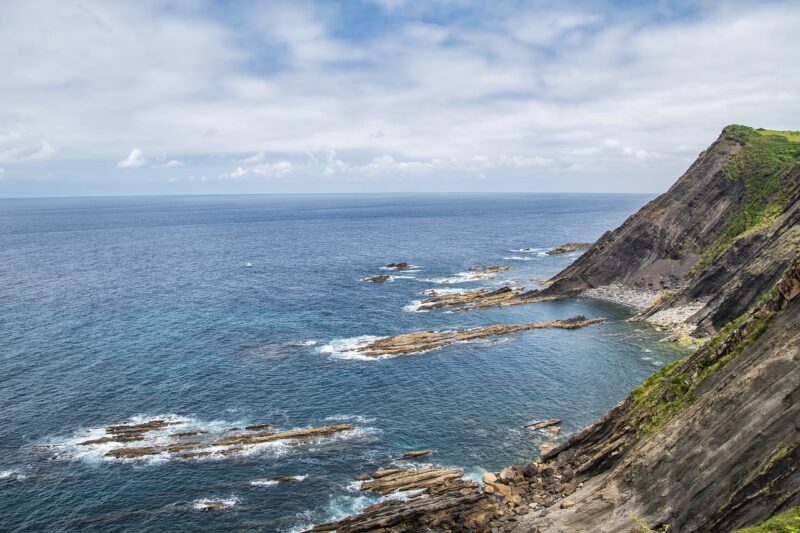Why Humans Are Drawn to Exploring the Deepest Parts of the Earth
November 17, 2024

Exploring the deepest parts of our planet—the oceans, caves, and subterranean landscapes—has captivated human curiosity for centuries. From ancient myths of the underworld to modern-day expeditions into the uncharted depths, our fascination with what lies beneath the Earth’s surface reflects a fundamental aspect of human nature: the desire to explore the unknown.
1. The Allure of the Unknown
Humans have always been drawn to discovering the unknown. Our desire to explore is an intrinsic part of our species’ history; early explorers ventured into uncharted territories driven by the thrill of discovery, the pursuit of knowledge, and the hope of finding new resources. This timeless eagerness propels us toward the deepest and least explored regions of the Earth, where mysteries await just beneath the surface.
The vastness of the ocean, for example, covers about 71% of our planet’s surface and remains largely unexplored. The allure lies not only in the potential for groundbreaking discoveries—like new marine species or geological formations—but also in the profound questions that arise from exploring such extreme environments. Why do certain species thrive in these harsh conditions? What can they teach us about resilience? These inquiries engage our innate curiosity, compelling us to dive deeper.
2. The Scientific Quest for Knowledge
Scientific exploration of the Earth’s depths leads to significant advancements in our understanding of geology, biology, and environmental science. Each descent into the oceanic abyss or venture into caves yields critical data on Earth’s formation, climate change, and ecosystems. For instance, the study of hydrothermal vents—found at ocean floor depths—has revealed thriving ecosystems that depend on chemosynthesis rather than sunlight, expanding our understanding of life’s adaptability.
Moreover, this pursuit often highlights the interconnectedness of all life forms. By studying these extreme environments, scientists can gather insights that help address major global issues, such as climate change, biodiversity loss, and resource sustainability. Thus, our quest for knowledge not only satisfies our curiosity but also serves to inform and protect our planet.
3. Human Resilience and Technological Innovation
Exploration of the Earth’s depths showcases human resilience and our remarkable ability to innovate. The challenges that come with such explorations are immense; underwater pressures can exceed 1,000 times that of the surface, and uncharted caves can present perilous conditions. Yet, engineers and scientists continually develop new technologies—like remotely operated vehicles (ROVs) and advanced diving gear—to overcome these obstacles.
These innovations also drive further exploration. The more we learn about the depths, the more questions arise, creating a continuous cycle of inquiry that fosters technological advancement and discovery. For instance, the development of submersible vehicles like the DSV Alvin has allowed researchers to reach the Mariana Trench, the deepest part of the ocean, revealing astonishing geological features and unfamiliar creatures that defy imagination.
4. Psychological Factors: The Call of Adventure
The psychological appeal of exploration runs deep within the human psyche. Many explorers are driven by a profound sense of adventure and the innate desire to push boundaries. This adrenaline-fueled passion often results in remarkable feats that redefine our understanding of exploration. The power of the narrative surrounding exploration—stories of bravery, perseverance, and triumph over nature—captures our collective imagination, inspiring future generations to pursue similar quests.
Documentaries, books, and public talks about explorations invite audiences to dream and aspire, reinforcing the idea that adventuring into the unknown is not just a scientific endeavor but also a deeply personal one. Each tale of courage shared strengthens our bond with the explorers themselves and ignites a shared yearning for discovery across cultures.
5. Conservation and Environmental Awareness
As exploration progresses, so does the awareness of human impact on the Earth’s environment. Many modern explorations are charged with a sense of responsibility to protect the fragile ecosystems discovered during these ventures. Efforts to document and preserve marine biodiversity, for instance, have led to significant initiatives aimed at conservation.
The relationship between humans and nature has become increasingly fraught, with pollution, climate change, and overfishing threatening the habitats we are only beginning to understand. Responsible exploration advocates for sustainable practices and emphasizes the urgency of protecting these ecosystems. As such, exploration evolves from a pursuit of knowledge to a gateway for meaningful environmental stewardship.
Conclusion: The Future of Exploration
Human beings will continue to venture into the Earth’s deepest parts, driven by curiosity, scientific ambition, and a sense of adventure. As technology improves and our understanding deepens, who knows what we may uncover?
From the depths of the ocean to the most remote caves, the exploration of our planet’s hidden frontiers remains one of the most exciting challenges of our time. It holds the promise of not just scientific discovery but also the hope of finding ways to coexist more harmoniously with our environment. As we stand on the brink of discovering what lies beneath, we reiterate the sentiment that the Earth, in all its complexity, invites us to explore—a call we cannot ignore.








